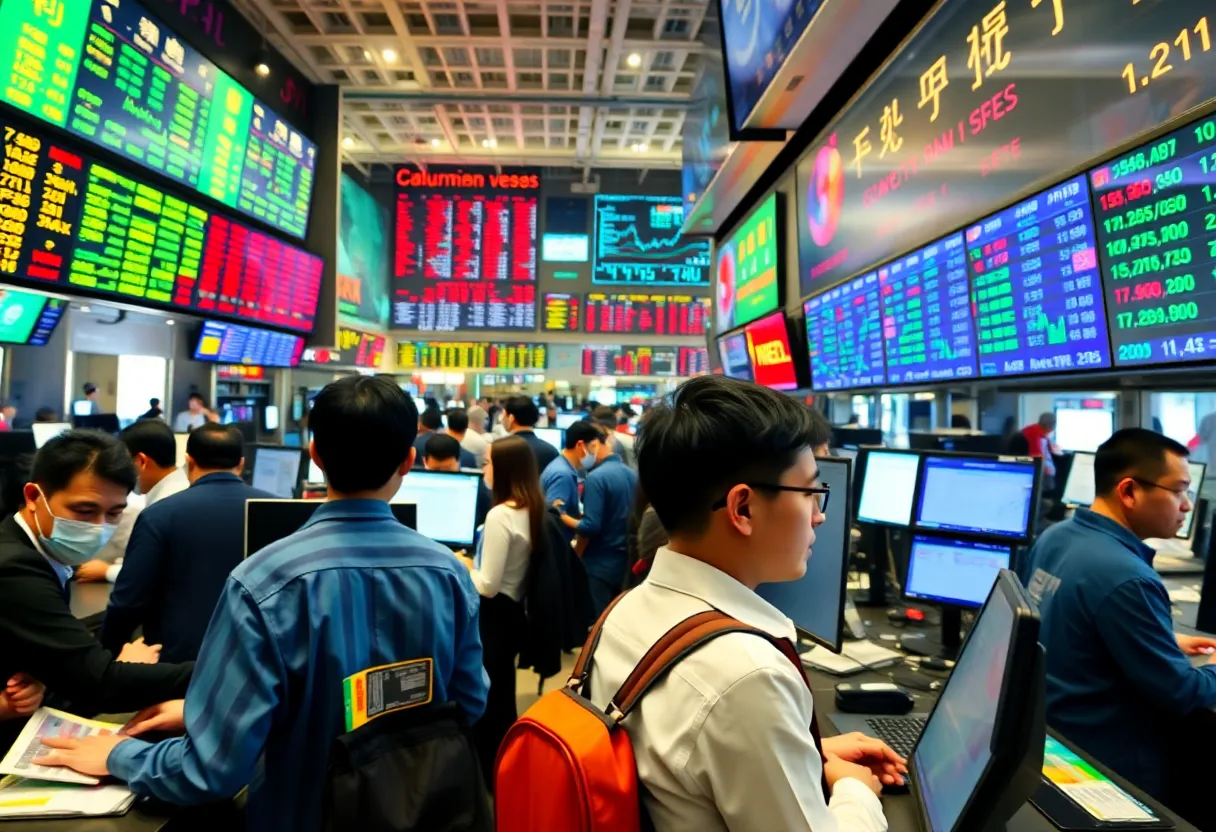News Summary
Investor sentiment across the Asia-Pacific markets fluctuated as President Trump’s recently announced tariffs on steel and aluminum imports sent shockwaves through the global economy. While Australia’s S&P/ASX 200 remained stable, South Korea’s Kospi saw a slight rise. Conversely, Hong Kong’s Hang Seng Index declined, and India’s benchmark indexes faced setbacks, although the Indian rupee appreciated against the dollar. U.S. markets showed resilience with positive movement in major indexes, while Chinese companies like BYD reported gains amid the tariff discussions.
Asia-Pacific Markets Feel the Heat from Trump’s Tariff Moves
Investor sentiment was all over the place in the Asia-Pacific markets on Tuesday, as folks continue to grapple with the implications of U.S. President Donald Trump’s latest round of tariffs. This comes hot on the heels of Trump signing off on a hefty 25% tariff on steel and aluminum imports into the United States. It’s tough to ignore how this seismic move sends ripples through the global economy!
Market Movements Across the Region
In Australia, the S&P/ASX 200 ended the day pretty much unchanged, closing at 8,484. Meanwhile, South Korea saw some positive action, with its Kospi lifting by 0.71% and wrapping up at 2,539.05. The small-cap Kosdaq mirrored its bigger counterpart and also settled flat at 749.59.
Over in Hong Kong, though, things weren’t looking as rosy. The Hang Seng Index dipped 0.87% during the last hour of trading, while the mainland’s CSI 300 experienced a slight decline, falling 0.46% to close at 3,883.14. It’s worth noting that Japan’s markets were closed that day due to a holiday, which likely kept things a bit quieter there.
Meanwhile, Singapore’s Straits Times Index decreased by 0.36% after having hit an all-time intraday high of 3,910.12 the day before. Home to millions, Singapore appears cautious amidst the shifting winds of global trade.
India’s Market Response
On the Indian front, the benchmark Nifty 50 saw a decline of 1.47%, while the BSE Sensex fell by 0.79%. Talk about a turbulent day! In contrast, the Indian rupee made some headlines of its own, appreciating by 0.69% against the U.S. dollar, trading at 86.8. This marked the highest single-day surge in nearly two years, hinting at possible intervention from the Indian central bank to counteract recent depreciation pressures. Such moves can play a pivotal role in stabilizing the currency and restoring investor confidence.
U.S. Markets and Economic Indicators
Over on the U.S. side, investors had some reasons to cheer as the Dow Jones Industrial Average climbed up 167.01 points, or 0.38%, finishing at 44,470.41. This was largely powered by McDonald’s shares which saw an impressive 4.8% gain. The S&P 500 wasn’t far behind, gaining 0.67% to settle at 6,066.44, and the Nasdaq Composite also joined the party, rising 0.98% to close at 19,714.27.
Investors were also keenly awaiting comments from U.S. Federal Reserve Chair Jerome Powell, who was set to speak before Congress that day. With so much economic uncertainty hanging in the air, every word counts in shaping market expectations.
Chinese Companies Thrive Amid Tariff Talks
In an interesting twist, Chinese electric vehicle maker BYD reached new heights with its shares climbing by as much as 4.54% in Hong Kong after launching some cool new autonomous driving features. Foxconn also reported a year-on-year revenue increase in January, with shares rising by 2%—proof that even in unpredictable market conditions, innovation often helps companies thrive.
If there’s one thing to take away from this day’s trading atmosphere, it’s that the impact of global tariffs and economic policies can’t be underestimated. Markets across the Asia-Pacific region are feeling the effects, and with every move made by the U.S., there’s an array of reactions waiting to unfold in the trading sphere!
Deeper Dive: News & Info About This Topic
- Bankrate: Current Interest Rates
- Wikipedia: Interest Rate
- CNBC: Best Unsecured Credit Cards for Bad Credit
- Google Search: Credit Cards for Bad Credit
- NerdWallet: Credit Card Debt
- Google Scholar: Credit Card Debt
- Money: Best Debt Consolidation Loans
- Encyclopedia Britannica: Debt Consolidation
- CNBC: What Credit Score Should You Have?
- Google News: Credit Score
- Money: Best Debt Consolidation Loans
- Google Search: Debt Consolidation Loans








